|
In
December of 2000, representatives from the Association
of Community Based Gang Intervention Workers participated
in an exchange visit to Northern Ireland. The trip
was co-sponsored by the Program in Citizen Peacebuilding
at UCI and MICOM -The Moldovan Initiative Committee
of Management-- an organization focusing on conflict
resolution and community development in Northern Ireland
and the Republic of Moldova. Our shared concerns about
violence and mutual efforts to ease violent situations
(among the gangs in East L.A., between the Protestant
and Catholic paramilitaries in Northern Ireland, and
between the Republic of Moldova and Trandsnestria)
helped to motivate this international exchange.
The purpose of this visit was to provide an opportunity
for representatives to share strategies about resolving
violent conflicts and community development efforts.
On this visit, the Los Angeles group met with community
groups, city representatives, parliament members,
ex-prisoners, teachers, youth, community workers,
business people, and others. While the most visible
conflict resolution, peace negotiation, and community
development takes place a federal or governmental
level, this was citizen peacebuilding of a different
variety. It brought together ordinary people to engage
with one another and share common problems, strategies,
and struggles and thus serve as catalysts for positive
changes in their respective communities.
This was a highly charged trip for both the groups.
Not only did the exchange encourage groups to learn
about another community, it also compelled them to
more deeply examine their own communities. The participants
were able to utilize one another to analyze and better
understand the causes and consequences of violence
in Northern Ireland and Los Angeles and more thoroughly
consider strategies for resolving conflicts and developing
our respective communities.
The participants engaged in many valuable discussions
during this visit. They shared how experiences of
violence were outcomes of a disenfranchised society,
community and family system. They noted how socio-economic
forces and drugs play a major role in cycles of violence.
They also discussed how politicians are a part of
the problem, yet must be a part of the solution. The
participants noted how transformation of communities
must involve politicians and grassroots activists
who work together in their communities in order for
more lasting and substantial positive changes to occur.
Those in Northern Ireland particularly observed how
the role of the Los Angeles participants as third
party facilitators served as a powerful catalyst for
significant change among the various disputing groups
involved in their conflict situation (some whom would
not have sat in the same room otherwise). We expect
that a delegation from Northern Ireland could serve
a similar role here in California.
There is much enthusiasm about continuing to cultivate
and expand these mutually beneficial relationships
that have been developed. Several ideas have already
been proposed. One proposal is a return exchange visit
in which a delegation from Northern Ireland could
(a) share their experiences, insight, and strategies
of peacebuilding with interested students, community
members, and government officials in Orange and Los
Angeles counties; (b) serve as third party facilitators
for current conflict situations (e.g., Costa Mesa
and East Los Angeles); and (c) facilitate the personal
development of program participants. In addition,
Northern Ireland participants have expressed particular
interest in our experience with the combination of
drugs and violence. They were cognizant of the relatively
new but growing drug trade in their country and wanted
to learn from our prevention, intervention, treatment,
rehabilitation, and re-entry efforts. They also expressed
interest in hearing more about the current situation
in California where politicians are reconsidering
the "war on drugs" and the prison system.
In addition, ways to encourage youth involvement in
citizen peacebuilding (perhaps through a mural exchange
project) have been proposed. One project being discussed
with folks from Northern Ireland is a "peace
mural project." This project would be designed
to further peacemaking efforts among the gangs and
racial and ethnic groups in Los Angeles, and among
the Protestant and Catholic paramilitaries of Northern
Ireland. It would provide opportunities for the personal
development of participating youth and mentors, and
facilitate and produce a collaborative mural emphasizing
the ideas of peace making, conflict resolution, and
community development. Generally, the proposed project
hopes to facilitate community involvement in peacemaking
and community development efforts.
These proposals and other future citizen peacebuilding
projects would benefit greatly from volunteer participation,
expertise, and connections in these and other related
areas, such as publicity and media for the Program
in Citizen Peacebuilding events, fundraising, ground
transportation for participants (buses, vans, tours),
hotels or homestays, airline tickets (donations, use
of frequent flyer miles), food and refreshments. We
invite you to participate in this exchange initiative.
Back
to Programs
|
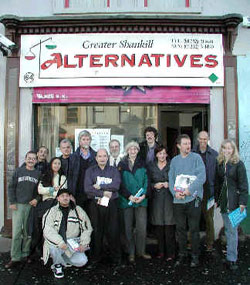
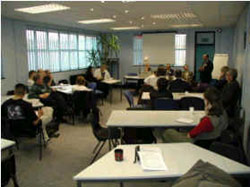
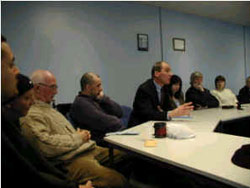
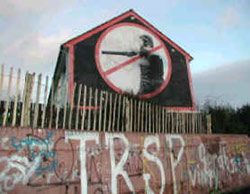
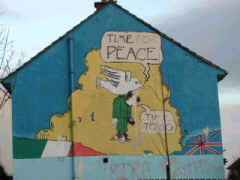
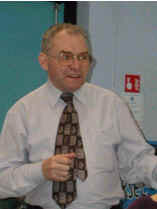
|